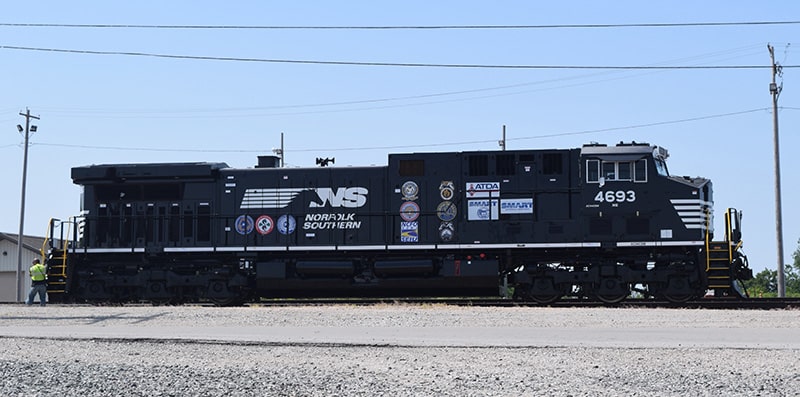
On August 28, the Norfolk Southern rail network’s technological infrastructure failed.
Crews couldn’t print off their pre-departure paperwork at the terminals. No one was able to report their hours of service. Many were unable to verify the consists of their trains. Emails weren’t able to be sent within the organization to organize a crisis/recovery plan, and even the crew callers were rendered useless, (insert your joke here).
However, the most dangerous side of this situation came into play when these computer issues left the crew rooms, call centers and corporate offices and made their way to the rails themselves. Dispatchers lost all control of their systems, as switches and signals were not aligning with each other or the controls of the dispatchers. Even Positive Train Control (PTC) was rendered inoperable.
It is too early to know with any degree of certainty what the cause of this systematic failure was. Unverifiable rumors have emerged on the internet, and it would be irresponsible of us to delve into them.
What we do know is that this event goes a long way to highlight the absolute necessity of the human element in railroading. As we all know, the carriers are more than happy to point out the alleged advantages of all the technology “improvements” they are bringing to the industry. If they are to be believed, their investments in computer systems have rendered our skills as railroad professionals to be nothing but a backup safety redundancy. And let’s all keep in mind they are doing everything in their power to reduce and eliminate the need for even that function, fighting tooth-and-nail against the establishment of a two-person minimum crew size in the Railway Safety Act of 2023.
Monday’s events point out that the railroads’ position couldn’t be further from reality. When the excrement hit the proverbial fan, it was the skills and professionalism of our SMART-TD conductors and engineers that prevented what had the potential to be the most widespread industrial calamity in the history of the nation. Yesterday, all the technology meant to eliminate the need for railroad professionals failed — simultaneously. As far as SMART-TD knows as of Tuesday morning, this incident was handled by our men and women without a single injury, derailment, grade-crossing collision or red signal violation.
The ramifications of this incident are terrifying, but the results are to be celebrated. It shows the world that technology is not always the end-all, be-all answer in transportation or any heavy industry. Technology failed catastrophically, putting the lives and well beings of all our NS brothers and sisters in jeopardy, and at the same time presented a massive potential threat to each and every community east of the Mississippi River with a NS track running through it.
On the flip side of that same coin, the people came through. Our members and everyone aboard an NS train proved without a doubt to be an amazing asset to these communities. The potential for disaster these crews defused is an outstanding testament to their value and the quality of work they show in their craft.
SMART-TD sees what you do every day, and you are always appreciated, but in the face of adversity yesterday you were a credit to yourselves, to our craft and to all working people. We applaud your focus, attention to safety and your well-honed railroading instincts. You should know that we will not allow NS or any other railroad to forget the lessons learned Aug. 28, 2023. Avoiding what could have been a major catastrophe will go a long way toward proving the value of conductors and engineers in every dispute we have with the corporations or government regulators for quite some time.
SMART-TD thanks you and will be updating you with any new info on the cause of yesterday’s events.
If any SMART members who work for NS have information on yesterday’s events or have details of their personal experience that might help SMART better represent our members, please reach out to our Government Affairs Department by emailing dbanks@smart-union.org.
Related News
- Fewer Eyes Mean More Derailments
- Santa Monica Local Wins Cost of Living Increases
- UTUIA is now American Journey Financial Life (AJFL)
- Senate Hearing Indicates Trouble for Public Transportation
- REMINDER: Registration Open for Anaheim Regional Training Seminar
- 2025 National Agreement Freight Negotiations Update from President Ferguson
- Brother Bill Link Retires After a Memorable 53 Year Career
- Bad Actors to be Restrained Thanks to New SMART-TD-backed Transit Bill
- Nebraska Reforms Standards for Rail Crew Transportation
- Show Your Pride, Win Shirts for Your Entire Local